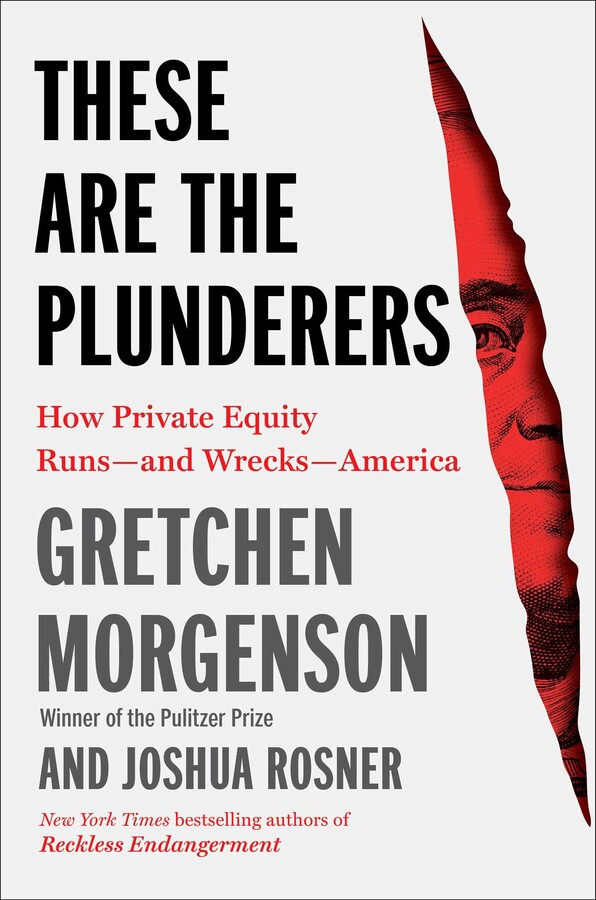It is easy to draw parallels between the Gilded Age of the late nineteenth century and our contemporary era of inequality, but aside from a penchant for conspicuous consumption, there are important differences between the old-time captains of industry and tycoons like Schwarzman. After all, the Carnegies and Rockefellers made steel and pumped oil; the Morgans (and attorneys like Bradley Martin) financed their endeavors, the building of factories and the laying of railroads. Their wealth was created in a mad rush for the profits to be gained by developing an agricultural country into an industrial urban one. But what does Blackstone do? How does it affect our world, and how has it made its owners so phenomenally wealthy?
Two new books on private equity—Plunder by the federal prosecutor Brendan Ballou and These Are the Plunderers by the journalist Gretchen Morgenson and the researcher Joshua Rosner—aim to shed light on these questions. Ballou adopts a lawyerly, academic tone, while Morgenson and Rosner prefer cliff-hangers reminiscent of a true-crime podcast; both present forceful briefs for regulating the industry. In the take-no-prisoners style of the Progressive Era’s muckraking reporters, each book provides an impassioned rebuke of the men (they’re mostly men) and women who have profited from private equity.
As their titles suggest, these books revolve around the scandal of looting, in one case explicitly likening private equity executives to pirates from times of yore. Taken together, they raise the question: What if private equity is not a perversion of capitalism (as the authors maintain), but merely a distillation of its contemporary values and practices? What if its leading financiers are an advance guard for our economic elite as a whole? Along with many other popular accounts of private equity, hedge funds, and high finance, the books imply that private equity primarily works by distorting and twisting economic norms. By looking closely, though, we also find the possibility of understanding the problems of today’s economic order.

